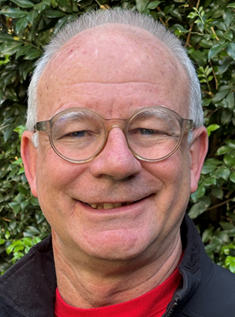 I am honoured to bring you this edition of the journal as the recently appointed Executive Director of the Australian Institute for Disaster Resilience (AIDR). As a long time reader, user and contributor of research in the Australian Journal of Emergency Management (AJEM), I am excited to work alongside my peers on the Editorial Committee to continue to shape and grow this publication’s contribution to disaster resilience and risk reduction.
I am honoured to bring you this edition of the journal as the recently appointed Executive Director of the Australian Institute for Disaster Resilience (AIDR). As a long time reader, user and contributor of research in the Australian Journal of Emergency Management (AJEM), I am excited to work alongside my peers on the Editorial Committee to continue to shape and grow this publication’s contribution to disaster resilience and risk reduction.
As I step into this role, I am proud to be part of this chapter of AIDR’s history as we continue to deliver our trusted knowledge products and services on behalf of the Australian Government. AJEM remains one of our flagship offerings and represents our commitment to advance disaster resilience and emergency management research, evidence, knowledge and practice.
As we face increasingly more complex challenges with the effect of climate change being realised, increasing biodiversity loss, a volatile geopolitical situation, loss of trust in institutions, and the speed of emergent technologies changing the way we work, authoritative peer reviewed evidence has never been more important. Over the course of the next three years, AIDR will take a systems approach, focusing on disaster risk reduction and resilience and on the local level as the foundations for action. We will continue to champion diversity, equity and inclusion.
Within this new contract period, AJEM will reach the significant milestone of 40 years’ in publication in 2026. From its humble beginnings as the 6-page newsletter then titled The Macedon Digest, AJEM has remained in continuous publication to today, and is a testament to the network of researchers, authors and valued readers who have propelled the publication’s popularity and standing.
The pages of AJEM in 2026 will celebrate the people and ideas that progressed the journal, and I encourage you to reach out to the AJEM Editorial Team with your reflections on the AJEM papers that have shifted your thinking or grounded your practice. For me, it was a line in Paton, Smith and Johnston’s 2005 article When good Intentions turn bad: Promoting Household Preparedness that said ‘connected communities are prepared communities’, a concept which became the basis of Red Cross’ Emergency Rediplan.
Mentioning the influential work of David Johnston (and Doug Paton), saddens me at the recent loss of these two research giants who have contributed so much to help us make sense of this complex world we live in. Their work lives on, and AJEM is proud to showcase the new and emerging giants of research in the field. Vale David.
I thank you for your continued support of AJEM and hope you find value and guidance within the pages of this edition.


